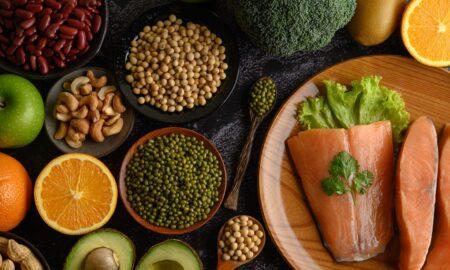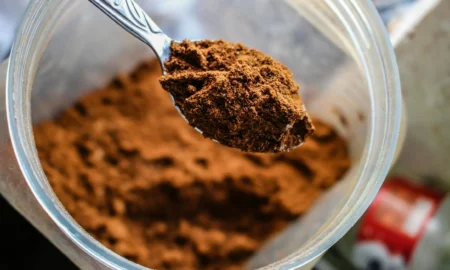Bodybuilders have believed for years that nutrition is just as important as training to making gains in muscular size and strength. Various numbers are called up in support of the idea, such as, “optimal nutrition is responsible for 80 percent of muscular gains.”
Certainly it’s plausible. Countless studies have shown that bodybuilders and others who regularly participate in strength training need more protein. They’re often advised to ensure an adequate intake of fats and carbohydrates too. Indeed, research has demonstrated that a diet containing less than 25 percent fat blunts testosterone synthesis. What’s more, carbs are the primary nutrient you need to power anaerobic workouts.
But is optimal nutrition the primary factor in determining who makes the greatest muscle gains? A new study featured 66 untrained men and women, recruited in two age categories: 20 to 35 years old and 60 to 75.1 All the subjects completed a 16-week, three-days-a-week program in which they trained only lower body, specifically their thighs. They did leg extensions, squats and leg presses for three sets each of eight to 12 reps using moderately heavy weight. Based on their responses to the training, the subjects were then divided into three groups:
1) Nonresponders, or hardgainers
2) Moderate responders
3) Extreme responders, or those who appear to gain muscle easily
Those in the third group showed a 60 percent greater gain in thigh-muscle-fiber hypertrophy than those in the first group, and the moderate responders also gained some mass. An analysis of the subjects’ diets revealed that all were taking in adequate nutrients, including protein and carbs, in roughly the same quantities, and they were getting enough to support muscle growth. Yet the gains made by the three groups varied from none to extreme.
The authors suggest that factors other than nutrition must explain the differences between hard and easy gainers. On the other hand, they also suggest that getting enough protein may be more important for those who experience difficulty in making regular strength and size gains.
While optimal nutrition is important, what ultimately determines how rapidly you make gains is beyond the realm of nutrition. The factors include gene activity and the ability to recruit muscle satellite cells, which play vital roles in muscle recovery and growth. Also important, however, is that hormone activity, which directly interacts with genetic muscle factors, is largely controlled by exercise and nutrition. For example, various anabolic hormones are directly affected by nutrient intake, as with the relationship of dietary fat to testosterone synthesis and that of protein intake to synthesis of insulinlike growth factor 1. IGF-1 produced in muscle directly triggers satellite cell activity. Increased protein intake may also blunt the activity of negative muscle factors, such as myostatin.
The study also found no relationship between the intake of branched-chain amino acids, including leucine, or essential amino acids and muscle gains. The authors do suggest, however, that easy gainers may be more responsive to those nutrients than moderate gainers and hardgainers. That suggests the nutrients may be more important to those who have trouble making progress with weight training.
One problem with the study was that no records were kept of when the subjects got protein relative to their training. Perhaps those in the extreme group ate their protein just before and after workouts, which may have provided additional anabolic and recovery benefits.
The authors mention other studies showing that the longer you train, the more efficient your body becomes at using protein, which implies that more experienced bodybuilders may need less protein than beginners. Indeed, studies show that experienced trainees produce less cortisol during exercise, which translates into less muscle breakdown. That doesn’t negate the fact that bodybuilders need to eat more protein than those who don’t train, but it underscores the folly of experienced trainees who eat massive amounts of protein. Nearly all of that protein is just oxidized in the liver.
In addition, the study also showed that the source of protein, whether animal or vegetable, didn’t make any difference as long as the total protein needs for muscle growth were met, which they were in all three groups. Still, the authors point out, “It would be difficult, if not impossible, to identify an ‘optimal’ protein intake to promote muscle hypertrophy in all persons.”
Editor’s note: Have you been ripped off by supplement makers whose products don’t work as advertised? Want to know the truth about them? Check out Natural Anabolics, available at www.JerryBrainum.com.
1 Thalacker-Mercer, A.E., et al. (2009). Does habitual dietary intake influence myofiber hypertrophy in response to resistance training? A cluster analysis. Appl Physiol Nutr Metab. 34:1-8.




















You must be logged in to post a comment Login